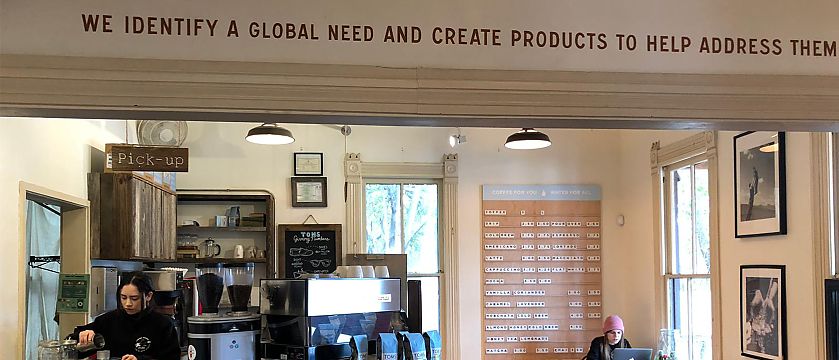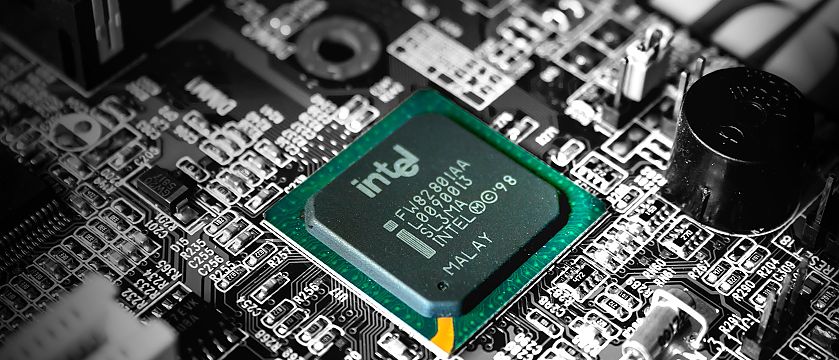Glossary
Impact Brand and Impact Mission
Impact Brand and Impact Mission
Impact Brand and Impact Mission

The owners of impact brands want to not only take social and ecological responsibility in their business activities, they actually want to change our society. They want to change the world for the better.
Impact brands are thus a new category of brands that are created out of a changed self-understanding – compared to primarily profit-oriented companies. Impact Brands are managed by so-called social entrepreneurs.
How are impact brands different from other brands?
These days, consumers feel that it is a duty of not only NGOs (non-governmental organizations) but also of companies and brands to "save" the world: They are expected to take on social and ecological commitments – beyond the measures of corporate social responsibility, which has already become taken for granted over the years. The goals of impact brands are set far higher.
"Impact led, performance driven" – this motto expresses the conviction of impact brands in a nutshell. Their foremost indicator is "impact". They deliver peak performances in order to improve society and the world – it's their reason for being.
At the same time, they are economically ambitious companies. They know that this is anything but objectionable. Profit is not the driving force behind their actions, but a consequence. This attitude makes impact brands extremely credible, both internally and externally.

Impact Mission
Impact brands use an individual impact mission as their nucleus and build a suitable and profitable business model to match. This mission informs all of their activities.
The impact mission describes the change an impact brand wants to bring about to change the world for the better and elevate society to a new level.
It is not only the center of all activities, but also the most important performance indicator. That means: Although impact brands operate on a profitable business model, they do not primarily measure their success by sales growth, but also by the effect of their mission – and by whether they have made progress in toward their goals. Sales growth and profits are seen as a consequence of that progress.
Examples of impact missions:
Tony's Chocolonely: "Together we'll make chocolate 100% slave free"
The brand has defined the goal of making all chocolate production in the world slave free. To do that, it not only produces its own chocolate bars without slave work. It also informs about abuses in cocoa production – in particular slavery – and tries to convince other manufacturers to do the same with a variety of initiatives.
Matternet: "Make access to goods as frictionless and universal as access to information"
This brand was born from the idea that every person in the world should have the same easy access to goods – even in the most remote corners of the globe and especially during emergency situations. In the overcrowded streets of the world, it wants to transport time-critical goods such as medications quickly from A to B. Matternet intends to achieve this with the help of a drone network.
Learn more here:
Book: „GOOD Business – Das Denken der Gewinner von morgen" by Achim Feige
Increased sales through the Brand
Increased sales through the Brand
Increased sales through the Brand

"Brands help sell", the saying goes – and it is true. Basically, a company has to decide whether it wants to sell based on price or based on value. When deciding to aim for "price leadership" as the ultimate goal, it should be remembered that only one can win the battle for the lowest price, and this is the beginning of a permanent price struggle – and dependency on the competition's pricing strategies.
When companies decide on the goal of "providing value"– meaning selling through a brand – they must be aware: Pure performance (the objective benefit) makes a product easily comparable to competing products. Only performances that cannot be compared, so-called brand performances (the subjective benefit), lead to incomparable prices and a price premium. Because: Brands embody much more than just a product, they provide orientation and trust because they convey clear values.
Companies who want to detach from the pure product performance and sell based on value therefore need a brand that keeps this value alive. Example BMW: Selling BMW vehicles is not just about the product. Along with the car itself, BMW sells the one-word equity the brand has built over many years: Joy.
So, if this value is conveyed in connection with the product and associated by the customer, then the product is a brand – and the price is separated from the pure product performance. This way, a price is defined for something incomparable that is much more than the mere product.
Proving these values every day is the challenge behind "selling based on value". And since people love to identify with brands or use them to boost their image, they are often willing to pay even irrational prices, such as €500 for a pair of black pumps by French shoe and bag designer Christian Louboutin (the brand style elements of his shoes are high heels and red soles).
Our recommendation:
Ingredient Brand
Ingredient Brand
Ingredient Brand

An ingredient brand is not sold directly to the end consumer. It is a component of a complete product that is available to consumers on the market. Some of the most successful examples are Gore-Tex® for clothing and shoes and Intel for computers.
Consumers trust ingredient brands when they have come to know them as guarantees for high quality. In such cases, the ingredient brands can even become a selling point for the product itself. Gore-Tex®, for instance, writes its promise to the end customer right on the hang tag: "Guaranteed to keep you dry".
How does ingredient branding work?
Ingredient branding is a very intensive form of brand cooperation, which has to succeed for the long term. It requires both sides to be vigilant: The owners of the ingredient brand have to monitor whether the final quality of the partner brand meets their standards – and whether their brand style is being observed. The managers of the end user brand, in turn, have to keep an eye on the brand fit: Is the peak performance of the ingredient brand really a valuable and therefore promising complement – perhaps for rejuvenating their brand?
Even though ingredient brands are only sold indirectly, a large portion of their brand communication addresses end consumers: It ultimately has to be understandable, visible, and tangible for them – no matter how complex its performance may be. Also, the owners of ingredient brands communicate directly with retailers, so they can present their peak performances adequately. They must concern themselves with the attractiveness and desirability of their brand.
Other examples of ingredient brands are: Paypal, Swarovski, Bosch (as for e-bikes), TQ, Shimano, Zeiss, Tetrapack, Teflon, 3M, ZE, Schott, Recaro, Bose, Dolby Laboratories, Lycra, Alcantara, Tencel, YKK.
Insurance brands
Insurance brands
Insurance brands

Insurance brands belong to the family of service brands. They provide non-material performances and are closely related to finance brands – like the brands of banks, building societies, credit card companies and investment companies.
Typical characteristics of insurance brands
These four characteristics are not unique to insurance brands, but are found with all finance brands and should be taken into account in their brand management:
- High demand for information and consulting: Many consumers initially find the services difficult to understand. It is all the more important to explain products in depth. This is often done digitally – for instance with chat bots, online content and e-mails. Some insurance brands have built purely digital second brands.
- Direct contact is important: Personal contact, particularly through insurance brokers, is still a key touchpoint. 77.6% of survey respondents say they prefer to talk to a flesh-and-blood consultant, as is revealed by a study we conducted to analyze 15 insurance brands (2018) https://www.brand-trust.de/de/studien/finanzmarkenstudie-deutschland.php.
- Long-term business relationships: The contracts often have very long terms, sometimes run for decades, as in the case of life or old age pension insurance.
- Image problems: Insurance brands – and finance brands as well – are constantly battling negative perceptions among the general public, which are essentially based on the great scandals of the past and unpleasant personal experiences.
The touchpoints of insurance brands
The unique feature of insurance brands: They have few touchpoints with customers. Once the contract is signed, there is usually little contact. This differentiates them from bank brands, which often have daily contact with their customers through their payment services.
The most important interaction for insurance customers is when they have a claim – for example when a liability insurer is expected to pay for damage. For many this is the moment of truth – regardless of whether the insurer is obligated to pay or not. After this contact, customers decide whether they will remain loyal to the brand, consider it credible and even recommend it to others. Or whether they are disappointed and switch to another insurer.
The less frequent the customer contact, the more important each detail becomes. But our study of insurance brands revealed: Nine of the 15 insurance brands we examined offer a negative experience at half of their customer contacts along the customer journey. A key success factor of strong insurance brands is therefore to have touchpoints that are as positive and differentiating as possible.
Power of Differentiation
They're all alike: 70 % of survey respondents consider their insurance to be interchangeable.
Many insurance brands are interchangeable
Another problem area: Insurance customers find it difficult to see the differences between services offered. 70% of survey respondents consider their insurance to be interchangeable.
A clear brand strategy helps to emphasize unique characteristics. The differences are what matters – meaning the things that only this one brand can do – not those things that everyone else can do as well.
Insurers have to enable their employees to clearly show those unique features. If they can do that, they can create attractive experiences during the customer interaction. Their actions then contribute to the insurer's brand strength.
Internal Branding
Internal Branding
Internal Branding

Internal Branding is a corporate strategy measure to enable and motivate employees to not only keep the brand promise but to "live" it. To do this, companies involve employees in the process of brand development, inform them about the brand, and inspire them to feel enthusiastic about the brand in order to ultimately influence their behavior to support the brand. Internal branding is particularly important because brands grow from the inside out and in fact contribute to increased sales. The "internal brand" and the "external brand" must relate to one another.
A brand is successfully rooted in the company when all employees understand it and act accordingly. The result is a sharpened image of the brand.
The brand strategy must be a priority for every single staff member and be lived by all employees. This kind of internal branding requires systematic planning, so that employees can be involved in the process early on. Representatives from different business units should be involved as early as possible – not when the brand strategy is implemented, as is often the case in practice. The sooner employees are integrated, the greater their understanding and acceptance of the brand strategy and their willingness to "live" the brand in their operative business. Apart from that, they contribute valuable input to the success of the brand strategy, provided they recognize its meaning and benefits.
Internal branding is the embodiment of the brand strategy for the target group employee – the manifestation of the brand identity in personnel selection and development.
It follows that the goal of internal branding is not to force some desired job-specific behavior but to guide employees toward brand-specific behavior. Ideally, the customer will experience an employee who has internalized the – outwardly communicated – brand promise and who communicates the brand and acts accordingly.
Get in touch with us
Would you like to arrange a non-binding telephone call with us or do you have questions about our offer? Then simply fill out this form and we will get in touch with you as soon as possible.
